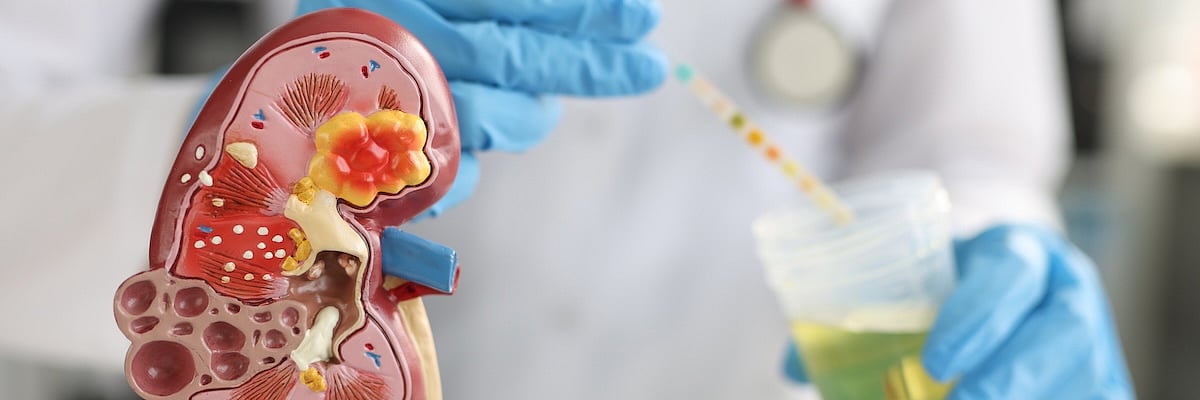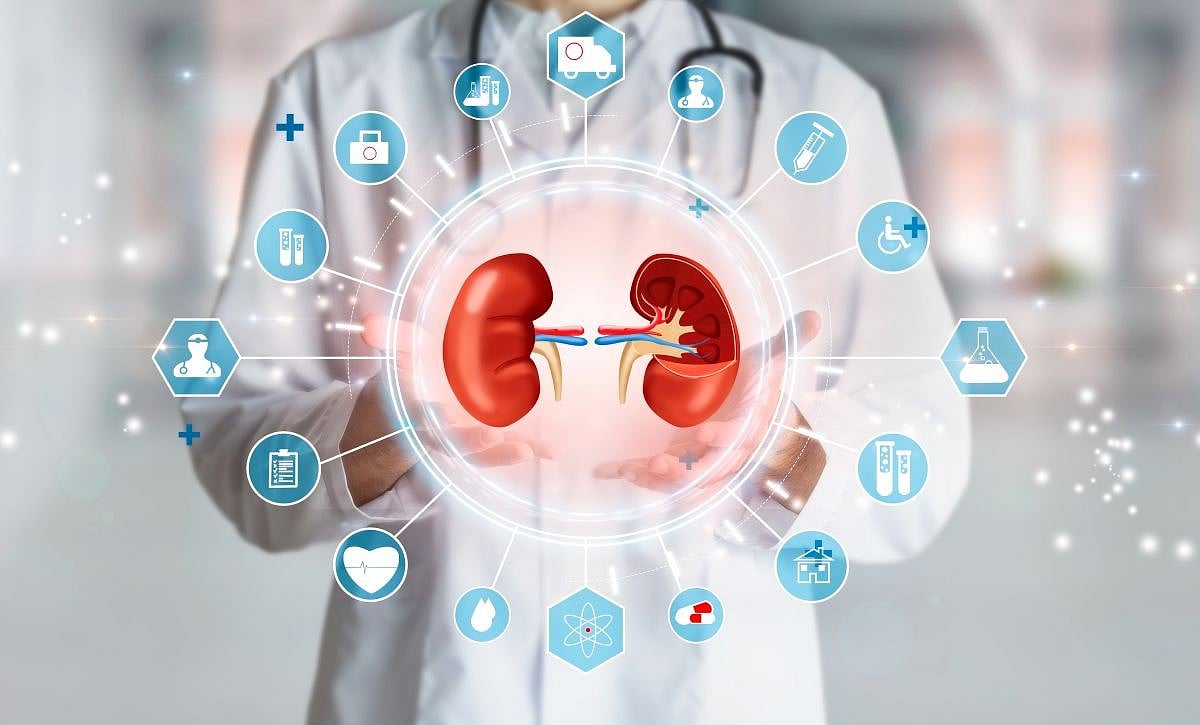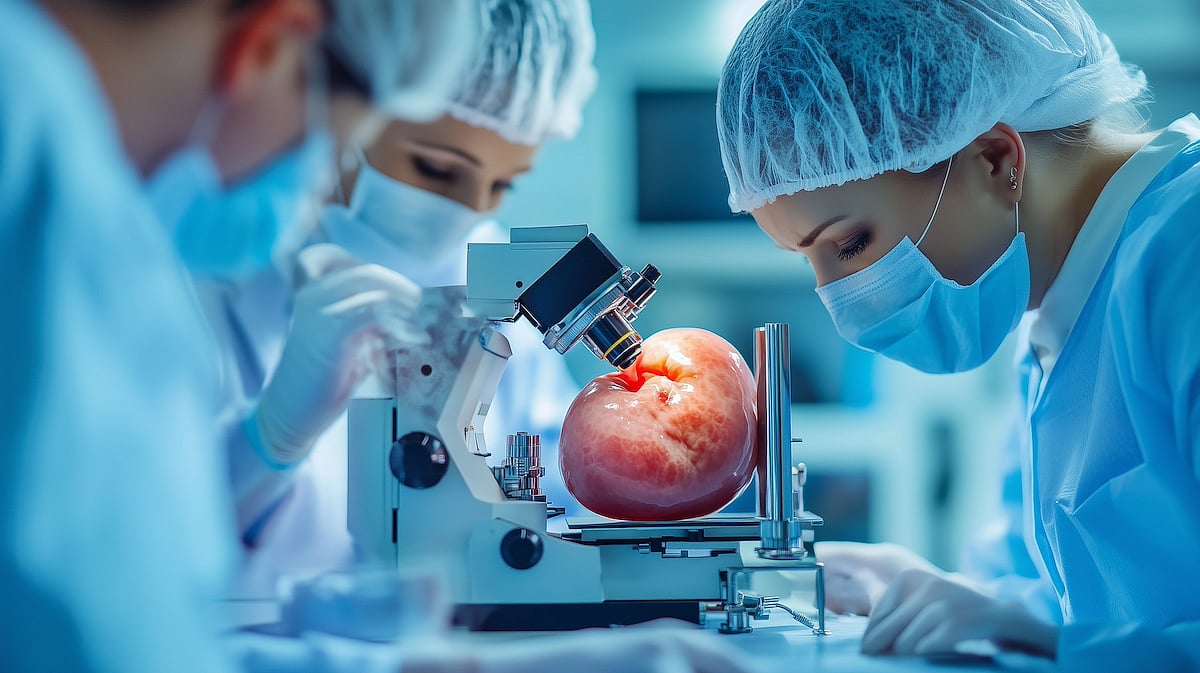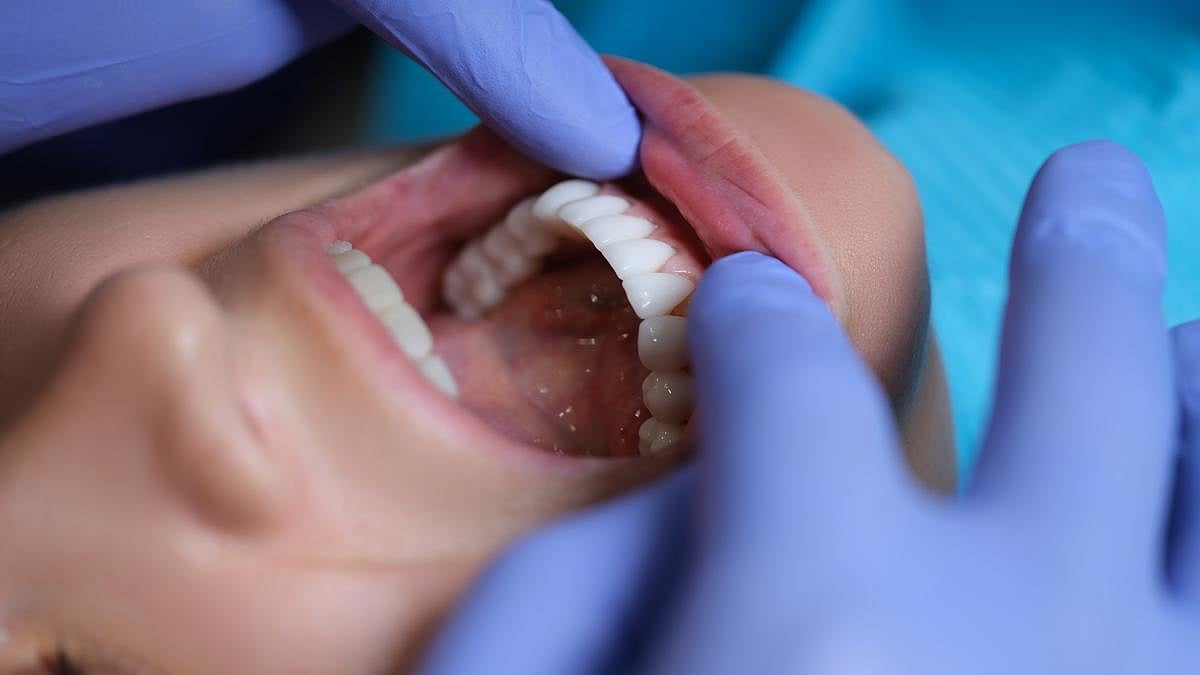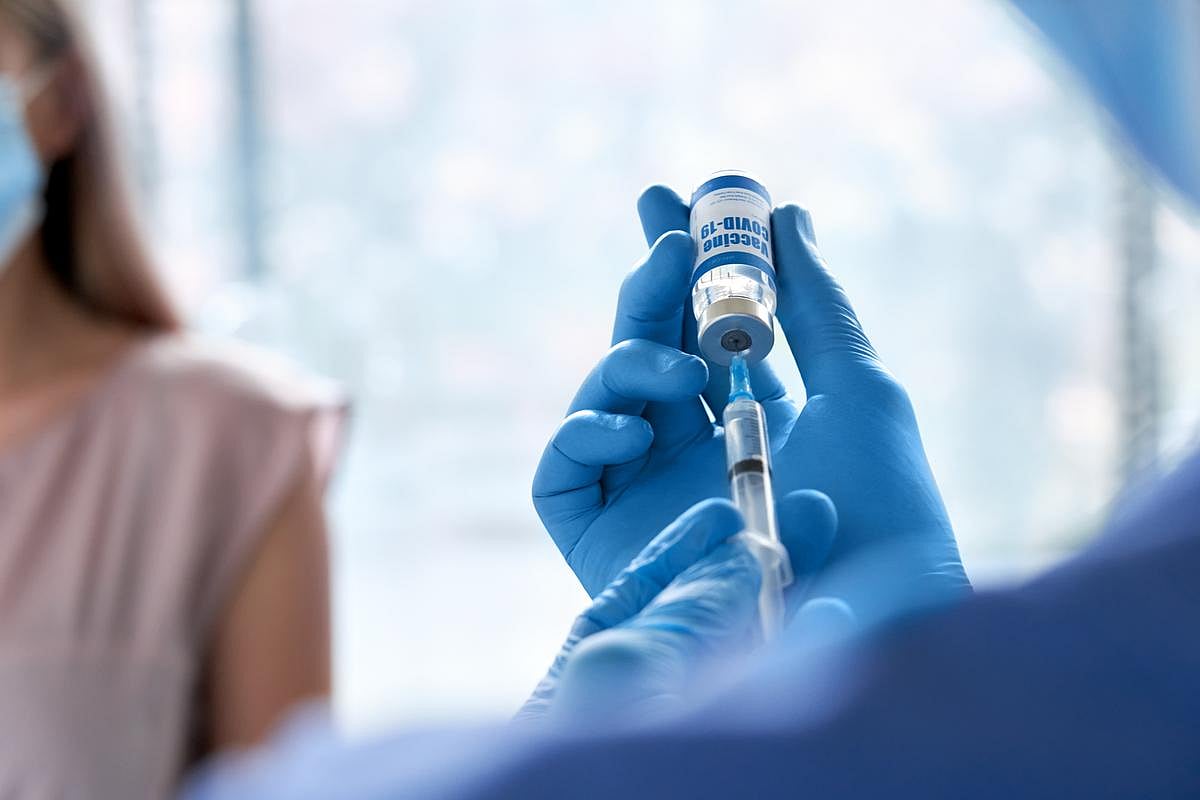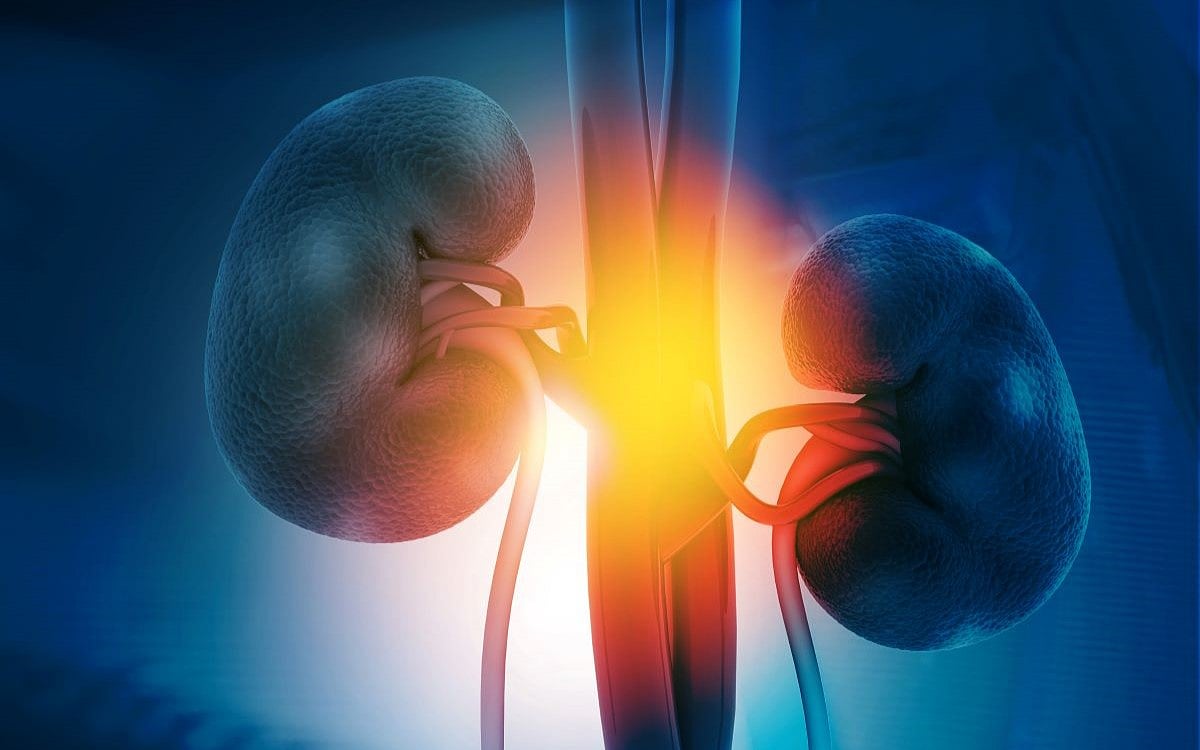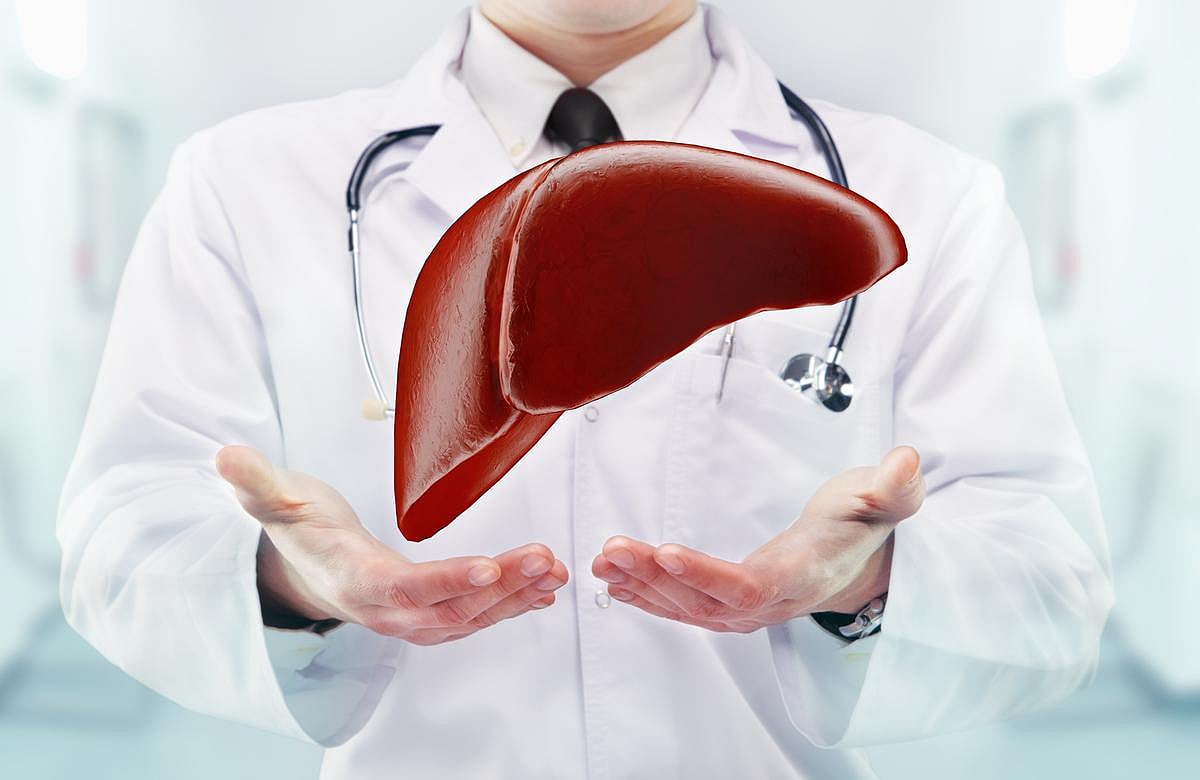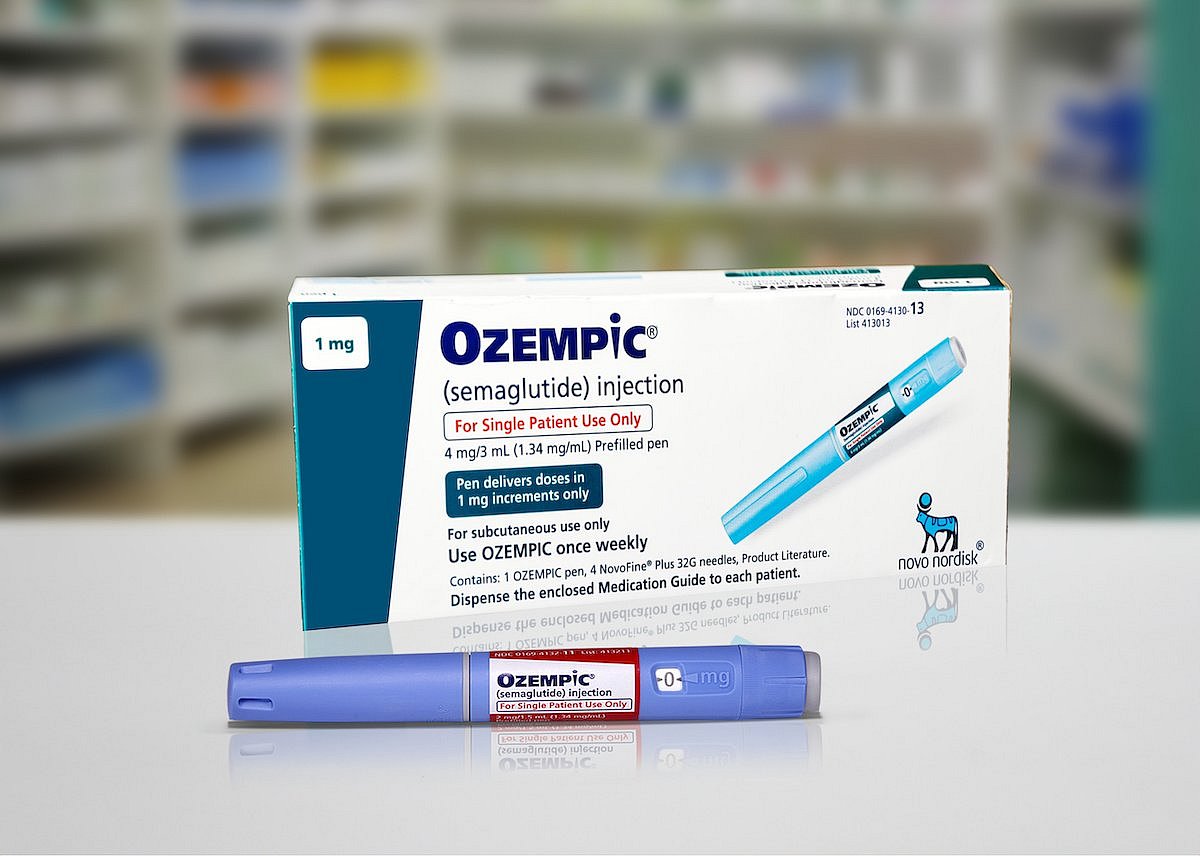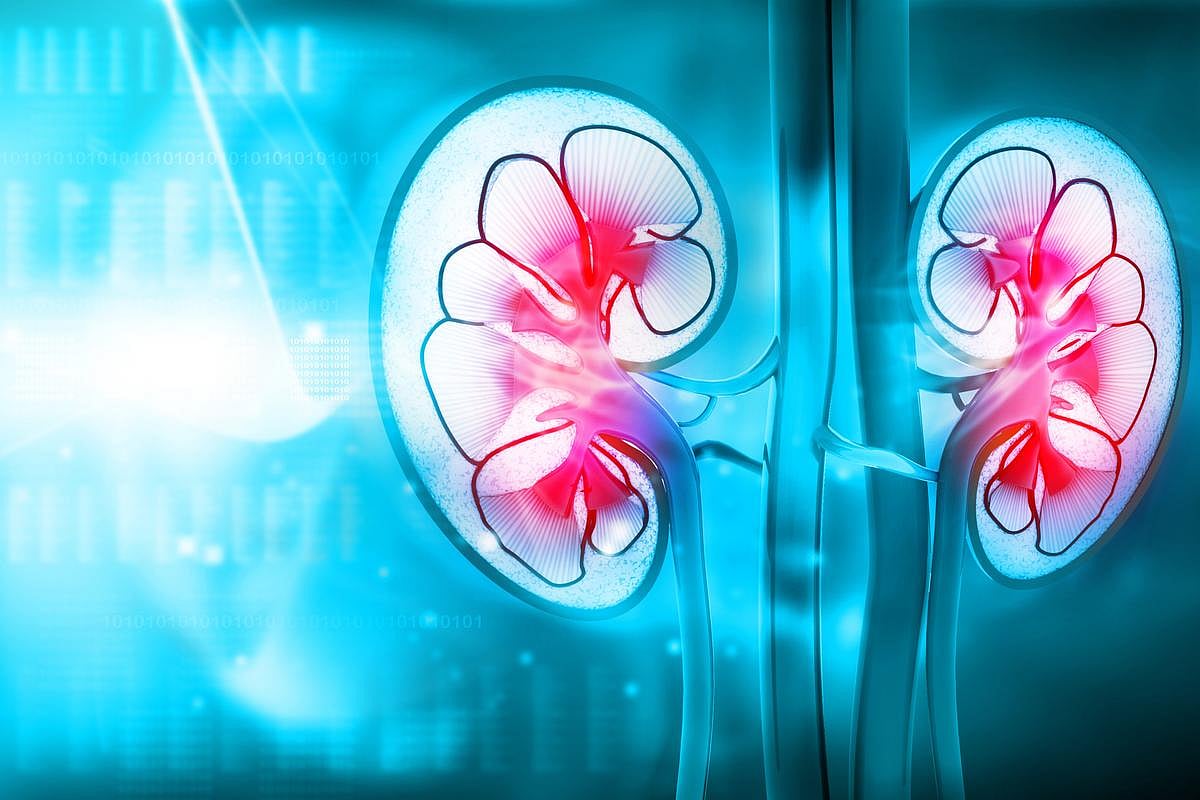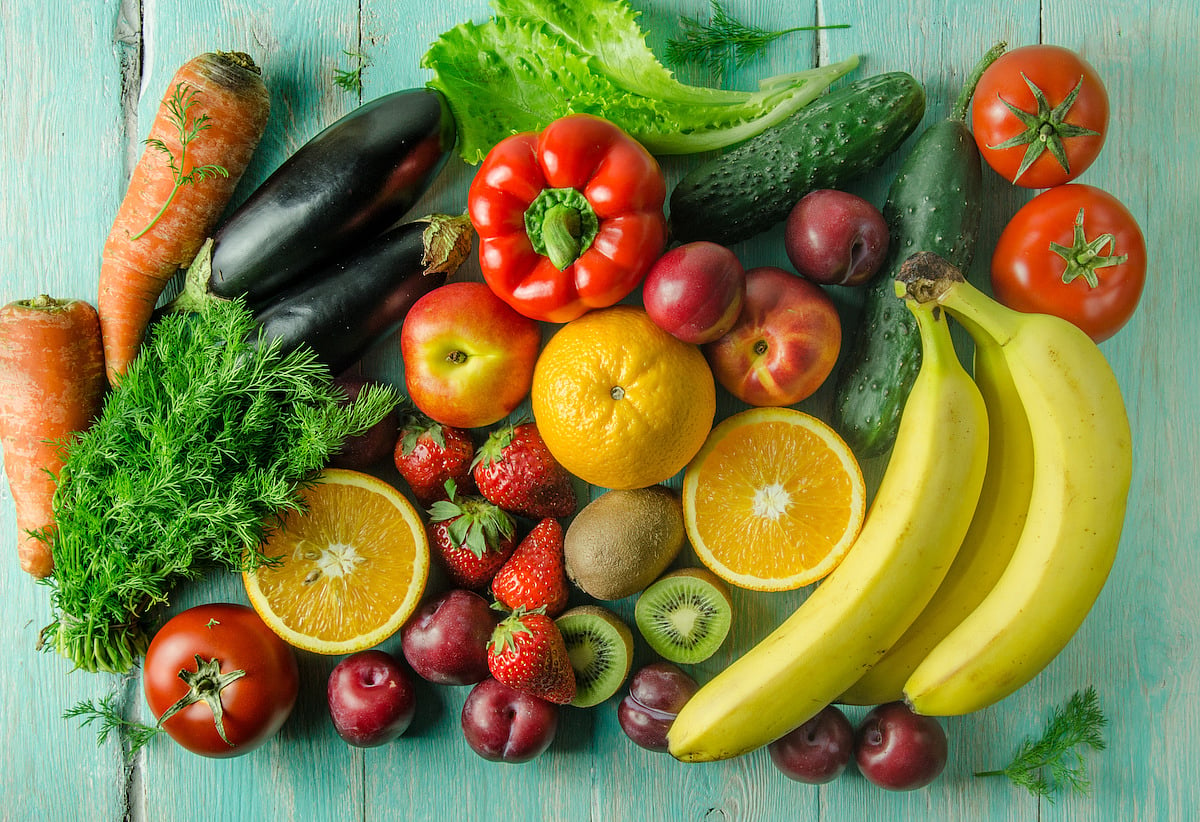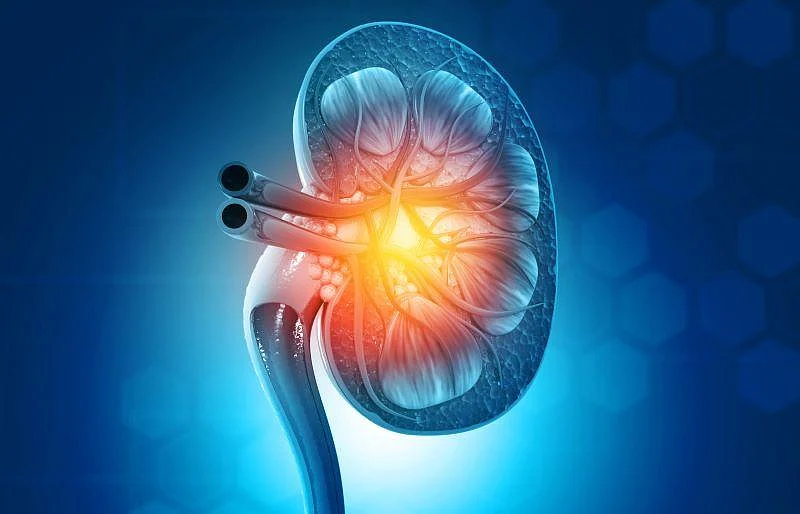Get Healthy!
Results for search "Kidney Problems: Misc.".
Health Videos - 4
Health News Results - 66
More than 14% of U.S. adults have some level of chronic kidney disease — and most have no idea.
"People with chronic kidney disease generally have no symptoms until they’re very near kidney failure," said kidney-health researcher Dr. Michael Shlipak of the University of California, San Francisco.
Chronic kidne...
- Carole Tanzer Miller HealthDay Reporter
- |
- January 17, 2026
- |
- Full Page
Your brain health might be linked to how well your kidneys are working, a new study says.
People with impaired kidney function have higher levels of proteins in their blood that are linked to Alzheimer’s disease, researchers reported Dec. 4 in th...
- Dennis Thompson HealthDay Reporter
- |
- December 4, 2025
- |
- Full Page
Eating disorders can harm a person’s physical and mental health in ways that linger for years, a new study reports.
Anorexia, bulimia, binge eating and other such disorders bring with them a high risk of health problems like diabetes, kidney or liver failure, broken bones and premature death, researcher...
- Dennis Thompson HealthDay Reporter
- |
- November 19, 2025
- |
- Full Page
A 67-year-old New Hampshire man has set a medical milestone after living more than nine months with a gene-edited pig kidney, doctors announced Monday.
The experimental transplant, performed by surgeons at Mass General Brigham, lasted 271 days, the longest anyone has survived with an animal organ.
Doctors said Tim Andrews of Concord, New Hampshire, had the transplanted kidney ...
- I. Edwards HealthDay Reporter
- |
- October 28, 2025
- |
- Full Page
It’s one of the deadliest syndromes you’ve never heard of, but experts are hoping to change that.
Nearly 9 of 10 Americans have not heard of cardiovascular-kidney-metabolic (CKM) syndrome, even though about the same proportion are affected by it, according to a new survey by the American Heart Association (AHA).
CKM syndrome represents a cluster of health problems occurr...
- Dennis Thompson HealthDay Reporter
- |
- October 21, 2025
- |
- Full Page
Farm workers have a higher risk for kidney disease, mainly due to exposure to high heat and agricultural chemicals, a new small-scale study says.
Workers on a grape farm near the Arizona-Sonora border had high levels of arsenic, cadmium and chromium in their urine, and those were linked to increased signs of kidney injury, according to findings published in the November issue of the journ...
- Dennis Thompson HealthDay Reporter
- |
- October 2, 2025
- |
- Full Page
A novel pill that blocks the hormone aldosterone shows promise for lowering blood pressure and potentially delaying the progression of kidney disease in people with both conditions.
The preliminary findings were presented Saturday at an American Heart Association (AHA) mee...
- Deanna Neff HealthDay Reporter
- |
- September 8, 2025
- |
- Full Page
Deaths from blood-pressure-driven kidney disease have increased dramatically during the past quarter-century, according to a new study.
Deaths from high blood pressure-related kidney disease increased by nearly half in the U.S. over the past 25 years, researchers reported Thursd...
- Dennis Thompson HealthDay Reporter
- |
- September 5, 2025
- |
- Full Page
Nearly half of U.S. adults should receive earlier treatment for high blood pressure, including lifestyle changes and medications, according to a set of new guidelines issued by America’s top heart health groups.
The guidelines call for early and more individualized treatme...
- Dennis Thompson HealthDay Reporter
- |
- August 15, 2025
- |
- Full Page
Poor dental health could be a harbinger of chronic illnesses like type 2 diabetes and heart disease, a new study warns.
People with missing teeth, coated tongues and other signs of poor oral health also were more likely to have elevated blood sugar, high cholesterol and diminished kidney functi...
- HealthDay Reporter
- Dennis Thompson
- |
- July 18, 2025
- |
- Full Page
Kidney damage is common during a severe case of COVID-19, but vaccination appears to protect people against this life-threatening side effect, a new study says.
Unvaccinated COVID patients with kidney damage severe enough to require dialysis are nearly three times as likely to die in the hospit...
- HealthDay Reporter
- Dennis Thompson
- |
- June 16, 2025
- |
- Full Page
Prompt treatment with a drug combo can effectively manage chronic kidney disease in people with type 2 diabetes, a new clinical trial shows.
Patients prescribed the combination of finerenone and empagliflozin experienced a 52% decrease in their urinary albumin-to-creatinine ratio, researchers report...
- HealthDay Reporter
- Dennis Thompson
- |
- June 9, 2025
- |
- Full Page
Wearing a face mask to protect others from infectious disease continues to be hotly debated in the United States.
But what about wearing a face mask to detect chronic kidney disease?
A modified surgical face mask containing a specialized breath sensor can accurately detect when someone has kidney disease, according to a new research published May 7 in the journal
A new clinical trial will soon test if a pig liver can help people whose own livers have suddenly stopped working.
The hope? That animal organs can temporarily filter a patient’s blood, giving their own liver time to rest and possibly recover.
The U.S. Food and Drug Administration (FDA) has approved the first-of-its-kind study, according to e...
- HealthDay Reporter
- I. Edwards
- |
- April 16, 2025
- |
- Full Page
GLP-1 drugs like Ozempic can help kidney transplant patients avoid organ failure and live longer, a new study suggests.
The drugs help manage patients’ type 2 diabetes and promote weight loss, both of ...
- HealthDay Reporter
- Dennis Thompson
- |
- March 6, 2025
- |
- Full Page
The health benefits of aggressive blood pressure control outweigh the potential risks for seniors, according to the latest results from a major clinical trial.
About 85% of seniors treated to a target blood pressure of 120 systolic (the top number in a blood pressure reading) had a positive net b...
- HealthDay Reporter
- Dennis Thompson
- |
- February 21, 2025
- |
- Full Page
The potential health benefits of GLP-1 diabetes and weight loss meds keep piling up: New research shows they may also shield your kidneys from harm.
In the largest study to date on the effects of the drugs on the kidneys, researchers found GLP-1s help the protect the organs in people with or without diabetes.
GLP-1s include blockbuster diabetes medicines such as Ozempic and it...
- HealthDay Reporter
- Ernie Mundell
- |
- November 26, 2024
- |
- Full Page
People with both type 2 diabetes and chronic kidney disease face a heart health double-whammy, a new study says.
Men with both diabetes and kidney disease will develop heart health problems 28 years earlier than those without either condition, researchers reported today at an A...
- HealthDay Reporter
- Dennis Thompson
- |
- November 11, 2024
- |
- Full Page
Women have a higher risk of heart failure and stroke than men while undergoing dialysis for kidney failure, a new study shows.
However, women also have a lower overall risk of dying than men, researchers found.
The bottom line: “Women have to be treated differently when it c...
- HealthDay Reporter
- |
- November 8, 2024
- |
- Full Page
The weight-loss drug Ozempic can guard against kidney disease in obese people, a new study shows.
Patients taking semaglutide -- the active agent in Ozempic and Wegovy -- had as much as a 52% reduction in kidney damage, as measured by urine testing, researchers reported Oct. 25 in the journal ...
- HealthDay Reporter
- Dennis Thompson
- |
- October 28, 2024
- |
- Full Page
People living with HIV who need a kidney can rest assured that outcomes are similar whether their kidney donor was also HIV-positive or not, a new study finds.
One- and three-year survival was the same, regardless of the donor's HIV status, as were the rate of serious side effects, such as infection, fever and organ rejection, said a team reporting Oct. 16 in the New England Journal o...
- HealthDay Reporter
- Ernie Mundell
- |
- October 16, 2024
- |
- Full Page
Ozempic and Wegovy can prevent heart problems in overweight and obese people, particularly if they also suffer from kidney disease, a new clinical trial shows.
The drugs’ active ingredient, semaglutide, reduced heart health risk by 20% in heavyset people who took it for more than three years...
- HealthDay Reporter
- Dennis Thompson
- |
- September 12, 2024
- |
- Full Page
The risk of death associated with donating a kidney is at an all-time low, a new study finds.
A kidney donor’s risk -- already small a decade ago -- is now lower by more than half, researchers found.
Fewer than one death occurs for every 10,000 kidney donations, according to res...
- HealthDay Reporter
- Dennis Thompson
- |
- August 28, 2024
- |
- Full Page
Some seniors with end-stage kidney failure who are too sick for a transplant should probably skip dialysis because the health trade-offs aren't worth it, a new study says.
Seniors who started dialysis immediately after diagnosis with kidney failure only lived an average of nine days longer than those who either waited at least a month to start or never bothered with the treatment, researc...
- HealthDay Reporter
- Dennis Thompson
- |
- August 20, 2024
- |
- Full Page
An apple a day, along with a healthy serving of vegetables, could become a first line of treatment for hypertension, new research suggests.
Diet plays a large role in overall health, and the study confirmed that a diet high in fruits and vegetables lowers blood pressure while improving both heart and ...
- HealthDay Reporter
- Angelina Livigni
- |
- August 12, 2024
- |
- Full Page
The second person to receive a kidney from a genetically modified pig has died, surgeons at NYU Langone Health announced Tuesday.
The 54-year-old patient, Lisa Pisano, had both kidney failure and heart failure. She received the pig kidney April 12, eight days after she had a mechanical ...
- HealthDay Reporter
- Robin Foster
- |
- July 10, 2024
- |
- Full Page
John Nicolas was deep into kidney transplant surgery when he decided to ask his doctors if they'd started yet.
"At one point during surgery, I recall asking, 'Should I be expecting the spinal anesthesia to kick in?'"Nicolas, 28, recalled in a news release. "They had already been doing a lot of work and I had been completely oblivious to that fact. Truly, no sensation whatsoever."
Ni...
- HealthDay Reporter
- Dennis Thompson
- |
- June 24, 2024
- |
- Full Page
Older women with chronic kidney disease might wind up losing so many teeth they aren't able to chew and talk effectively, a new study warns.
Postmenopausal women with kidney disease are about 40% more likely to have fewer than 20 teeth, the minimum number needed to adequately chew and speak, researchers reported June 12 in the journal
Mankind is eyeing Mars as its next grand expedition, but the human body might not be capable of dealing with such a journey, a new study warns.
It's very likely that an astronaut's kidneys could be permanently damaged by cosmic radiation during a years-long mission to Mars, researchers reported June 11 in the journal Nature ...
- HealthDay Reporter
- Dennis Thompson
- |
- June 12, 2024
- |
- Full Page
A woman who was the second person to ever receive a kidney from a genetically modified pig has had the transplanted organ removed due to complications linked to a heart pump she is using, her doctors said.
Lisa Pisano, 54, remains hospitalized and has been transferred back to kidney dialysis after having the transplanted organ removed.
The organ, transplanted 47 days earlier, had n...
- HealthDay Reporter
- Ernie Mundell
- |
- June 5, 2024
- |
- Full Page
Ozempic provides a wide variety of health benefits for people with kidney disease and type 2 diabetes, a major clinical trial has found.
The drug significantly reduces the risk of severe kidney events, heart problems and death from any cause in patients who have both conditions, researchers found....
- HealthDay Reporter
- Dennis Thompson
- |
- May 24, 2024
- |
- Full Page
Nine of 10 American adults are in the early, middle or late stages of a syndrome that leads to heart disease, a new report finds, and almost 10% have the disease already.
"Poor cardiovascular, kidney, and metabolic health is widespread among the U.S. population," concludes a team led by
Rick Slayman, the first person to receive a kidney transplant from a genetically modified pig, headed home Wednesday after faring so well that he was released from the hospital just two weeks after his groundbreaking surgery.
"This moment -- leaving the hospital today with one of the cleanest bills of health I've had in a long time -- is one I wished would come for many years. Now, it's ...
- HealthDay Reporter
- Robin Foster
- |
- April 4, 2024
- |
- Full Page
THURSDAY, March 21, 2024 (HealthDay news) -- For the first time ever, doctors have transplanted a genetically edited pig kidney into a human suffering from advanced kidney failure.
Such pig kidneys, altered to lower the risk of rejection and disease, have been successfully placed into monkeys and brain-dead human donor bodies.
But Rick Slayman, 62, is the first living patient to rec...
- HealthDay Reporter
- Dennis Thompson
- |
- March 21, 2024
- |
- Full Page
Weight-loss surgery may help patients struggling with obesity and kidney failure become eligible for a lifesaving transplant, researchers report.
Obesity is a key reason why some kidney patients are turned down for a transplant.
But weight-loss surgery "not only helps in reducing the patients' weight to a level where they can safely receive a transplant, but also addresses the broad...
- HealthDay Reporter
- Carole Tanzer Miller
- |
- March 13, 2024
- |
- Full Page
Folks who drop pounds to help control their diabetes receive other substantial heath benefits for all their efforts, a new study says.
Substantial weight loss that led to even a short-lived remission in type 2 diabetes also prompted a 40% lower rate in heart disease and a 33% lower rate of kidney disease, researchers report in the Jan. 18 issue of the journal
Teenagers who've packed on extra pounds have a significantly increased risk of developing kidney disease as a young adult, a new study finds.
Obesity increased risk of later kidney disease as much as ninefold in boys and fourfold in girls, according to results published recently in the journal JAMA Pedi...
- HealthDay Reporter
- Dennis Thompson
- |
- January 5, 2024
- |
- Full Page
Folks who habitually add an extra sprinkle of salt to their meals are doing no favors for their kidneys, new research confirms.
The finding held even after researchers accounted for other health issues, such as being overweight, not exercising or smoking and/or drinking.
The bottom line: "Adding salt to foods is associated with increased risk of chronic kidney disease in the general...
- HealthDay Reporter
- Ernie Mundell
- |
- December 29, 2023
- |
- Full Page
Early results from a trial of a new kidney disease medication show it significantly reduces levels of a urine marker of kidney damage.
The experimental drug -- called BI 690517 for now -- cut levels of the liver protein albumin in the urine in half for patients with chronic kidney disease.
Albumin levels in urine have long been used to gauge kidney disease progression.
"We thi...
- HealthDay Reporter
- Ernie Mundell
- |
- December 19, 2023
- |
- Full Page
Exposure to wildfire-related air pollution in western states has taken its toll on U.S. patients who are on dialysis.
New research linked it to elevated risks of hospitalization and death in patients who were receiving in-center hemodialysis treatment in Washington, Oregon and Califo...
- HealthDay Reporter
- Cara Murez
- |
- November 7, 2023
- |
- Full Page
Two years after a gene-edited pig kidney was transplanted into a monkey, researchers report the monkey is still alive.
"We're the only group in the field to comprehensively address safety and efficacy of our donor organ with these edits,"said study co-author
Hispanic folks with chronic kidney disease should have early heart health screenings, new research suggests, because they're at high risk for sudden cardiac arrest.
A team from the Smidt Heart Institute at Cedars-Sinai in Los Angeles discovered this while working to learn about possible causes for the heart unexpectedly stopping.
"Because people who experience sudden cardiac arrest ...
- HealthDay Reporter
- Cara Murez
- |
- October 12, 2023
- |
- Full Page
One day, it may be possible to monitor people for risk of disease through continuously measuring skin temperature.
Researchers have found in a new study that wrist temperature is associated with future risk of disease.
"These findings indicate the potential to marry emerging technology with health monitoring in a powerful new way,"said senior author
For the first time ever, a solid humanized organ has been grown from scratch in an animal -- a first step in a process that could potentially solve organ shortages and save countless lives.
Chinese researchers grew partially human early-stage kidneys inside embryonic pigs, using a variety of genetic engineering techniques, a new report reveals.
"This study demonstrates proof-of-prin...
- HealthDay Reporter
- Dennis Thompson
- |
- September 7, 2023
- |
- Full Page
Decades of "redlining"-- discriminatory policies that led to disinvestment in minority communities within the United States -- may be connected with current cases of kidney failure in Black adults.
A new study from researchers at Boston University School of Public Health (BUSPH) shows that long-term disinvestment of wealth and resources in historically redlined neighborhoods likely contr...
- HealthDay Reporter
- Cara Murez
- |
- July 6, 2023
- |
- Full Page
Young adults who have even modest reductions in kidney function could face significant health risks, according to a new study.
"The dogma is that healthy, young adults don't need to worry about kidney function unless it drops to around 50% of the normal level, but our research suggests that even a more modest 20%-30% drop may have consequences," said co-author
Here's one more reason to watch your weight: Obesity can increase your odds for serious complications after surgery.
Compared with patients of normal weight, those who are obese are at greater risk for developing blood clots, infections and kidney failure after surgery, a new study reports. Pa...
- HealthDay Reporter
- Steven Reinberg
- |
- May 8, 2023
- |
- Full Page
Kidney disease patients on dialysis are 100 times more likely to contract a dangerous blood infection than people not receiving the treatment -- and that risk is borne primarily by Hispanic and Black Americans, U.S. government health officials say.
Hispanic patients are 40% more likely than white patients to develop a staph bloodstream infection while on dialysis, according to a new
- HealthDay Reporter
- Dennis Thompson
- |
- February 7, 2023
- |
- Full Page





